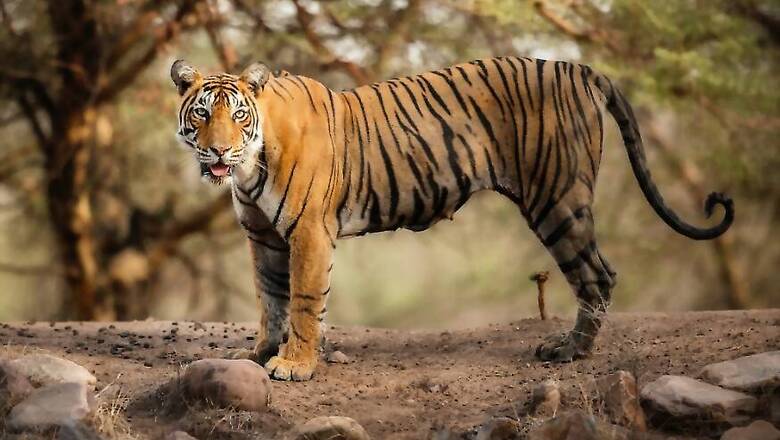
views
New Delhi: The zoonotic Covid-19 disease seems to have found a path to wild animals too after it was reported that a Malayan tiger named Nadia tested positive for Covid-19 in a Bronx Zoo in New York City after it was reportedly infected due to an asymptomatic zookeeper.
Soon after the Bronx Zoo news travelled across the globe, authorities in the Indian government advised field staff in tiger reserves and zoos to take utmost precaution to avert the disease in wild tigers and wild cats housed in various zoos in the country.
The wildlife division of the Union Environment Ministry and the ministry's umbrella bodies such as the National Tiger Conservation Authority (NTCA) and Central Zoo Authority (CZA) have written to national parks, tiger reserves and zoos, respectively, advising them to remain on alert and keep a close watch on wild animals for symptoms consistent with COVID-19.
The wildlife division has asked its departments in states to constitute a task force or a rapid action force consisting of field managers, veterinary doctors and frontline staff to manage the situation as quickly as possible.
States have been asked to take immediate preventive steps to stop transmission and spread of the coronavirus from humans to animals and vice-versa.
Scientists have closely linked the source of SARS-CoV-2 to scaly pangolins and transmission of the infection has largely been human-to-human. However, the Bronx Zoo case is the first case that has surfaced publicly of transmission from a human to a wild animal.
The NTCA has asked field staff in tiger reserves to watch out for signs of nasal discharge, coughing and laboured breathing through direct observation to the extent possible besides checking camera-trap images for visible symptoms.
It stressed that due diligence is needed when post-mortem cases are handled and while collecting samples for Coronavirus diagnosis. It also advised the staff to collect samples during post-mortems in consultation with state veterinary officials while wearing protective gear.
“This is a precaution we are taking. We have not seen such cases among wild animals so far, but we need to be alert and prepared,” said NCTA Member Secretary and Additional Director General Anup Nayak.
There are 50 tiger reserves in the country and there are 2,967 tigers in the wild, according to the 2018 population estimation exercise. There is no data available immediately on the number of wild cats in zoos.
Leopards are the most abundant wild cats in the country, followed by tigers and lions, while there are smaller species such as civet cats, marbled cats and fishing cats. The SARS outbreak reported in the early 2000s was linked to civet cats. It killed over 770 people worldwide.
The NTCA said that since coronaviruses are known to affect gastrointestinal systems in felines, it needs to be assessed and differentiate between novel coronavirus and the one found among felines.
Feline coronavirus is not uncommon among house cats, but cases in the wild are not reported widely. Thus, NTCA said that a differential diagnosis is necessary to make a distinction between feline infectious rhino-tracheitis and COVID-19. It said that samples of suspected cases should be sent to Indian Veterinary Research Institute, Bareilly, and other labs affiliated to the Indian Council of Agricultural Research.
Meanwhile, the CZA said zoo caretakers should be on high alert and keep a 24x7 watch on animals for unusual symptoms and behaviour. It has advised zookeepers to wear personal protective gear and have minimum contact while feeding them.
“Mammals like carnivores, especially cats, ferret and primates are to be carefully monitored and fortnightly samples of suspect cases to be sent to designated animal health institutes to initiate COVID-19 testing, while following all bio-containment and safety measures required to handle this high-risk pathogen as per national and ICMR guidelines,” CZA's advisory said.
Experts said that more testing and screening among animals, too, is required to arrive at conclusions.
“Many coronaviruses found in animals can also cause respiratory disorders. So far, there is only anecdotal evidence of human-to-animal transmission, and no evidence of pet-to-human transmission. To fully establish this link, we need to screen more animals and conduct controlled experiments,” said Dr Abi Vanak, scientist with ATREE, Bangalore and Department of Biotechnology/ Wellcome Trust Fellow.


















Comments
0 comment